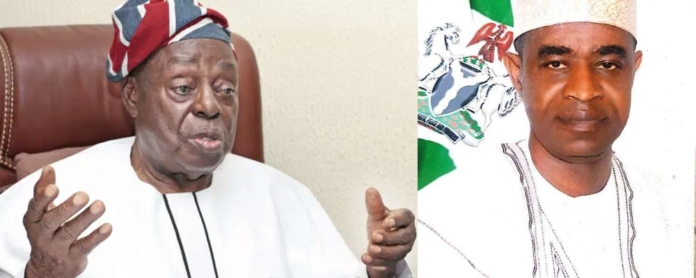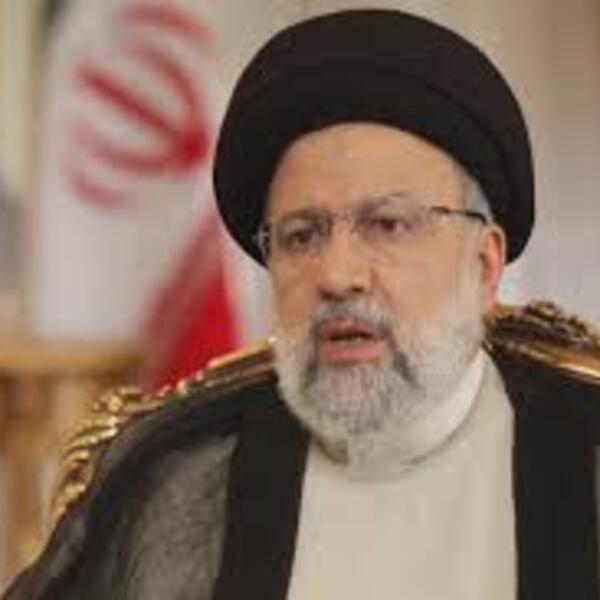Revelations extracted from a leaked U.S. government cable showed that senior lawyer Afe Babalola spent at least $1.125 million on five judges who sat at the Court of Appeal in the early 2000s to procure a favourable judgement for his client, then Adamawa Governor Boni Haruna.
Mr Babalola bribed a panel of five appellate judges led by Justice Pius Olayiwola Aderemi with $225,000 each to restore Mr Haruna to office after an election petitions tribunal sacked him on grounds of electoral malpractice, according to classified U.S. intelligence published by global transparency group, Wikileaks.
The document cited a senior lawyer’s account of how he followed Mr Babalola to deliver tens of millions of naira to appellate jurists to purchase their preferred ruling.
Mr Babalola, 95, had a reputation for winning his cases in his practising years. This trait made him highly sought after by the nation’s who’s whos, including former President Olusegun Obasanjo, governors and many high-profile citizens.
But a lawyer on Mr Babalola’s team told the U.S. government that the senior advocate won the controversial matter with cash and that he was among the persons who carried N30 million untraceable bank notes to bribe the justices at Mr Babalola’s behest.
U.S. diplomats were alarmed by the glaring disparity between the tribunal ruling that nullified Mr Haruna’s victory and the decision of the Court of Appeal that restored him to office.
“The verdicts of the appeals court and the election tribunal differed so significantly on their findings of the relevant facts that they beg the question of whether one verdict or the other may have been ‘influenced’ by outside parties,” the foreign cable stated.
The witness stated that buying judgements “was the normal procedure” for such important cases, which confirmed the diplomats’ suspicions that the verdict that reinstated Mr Haruna’s gubernatorial victory cost N30 million.
“According to an attorney for Haruna, the outcome was ensured in typical Nigerian fashion: with cash,” stated the leaked U.S. government cable. “The attorney, who works for Presidential attorney Afe Babalola, said that when President Obasanjo sent Babalola to take over the appeal, he also sent cash to be used for the appeal.”
Mr Haruna was among the first governors to be charged with corruption by the anti-corruption commission, EFCC, after leaving office in 2008.
Mr Babalola did not return comment to shed light on the content of the classified U.S. cable.
The Wikileaks documents have shattered hopes that Mr Babalola might have had to defend himself against corruption allegations raised by rights lawyer Dele Farotimi, 56, who, in his book, accused the senior advocate of buying verdicts with cash rather than merit-based arguments.
Not only did Mr Babalola deploy the police to brutalise and arrest Mr Farotimi on December 3 over a defamation allegation, the rights lawyer was also transported from Lagos to Ekiti —where the nonagenarian wields significant influence— on a five-hour road trip.
Nigerians were incensed that Mr Babalola would resort to crude tactics to crack down on his younger colleague over an allegation of corruption, a civil matter that could be litigated and resolved in court.
The nonagenarian has strongly denied the corruption allegations and insisted he will not back down until he clears his name. Mr Babalola’s supporters are asking Mr Farotimi to apologise to the elder statesman, retract the allegations and allow sleeping dogs to lie.
But Mr Farotimi’s supporters said they hoped the rights lawyer would not dignify such a request, given the brutalisation he has so far suffered.
The controversy surrounding the book, which initially saw low sales after its release in July, has made it a bestseller on Amazon within three days of its author’s incarceration as curious Nigerians besieged the site with orders to read the damning accusations of corruption levelled against Mr Babalola.
The book has also sold out in popular stores like Tinu-Ade Bookshop in Ibadan and VIC Bookstore in Abuja, where Nigerians have trooped to purchase it.
The author’s supporters planned to stage protests across several locations in Abuja, Lagos, Ekiti and the King’s College London, which received a £10 million donation from Mr Babalola in 2023.
The demonstrations aim to draw attention to the precarious state of freedom in Nigeria under President Bola Tinubu’s watch.
 Donate
Donate



